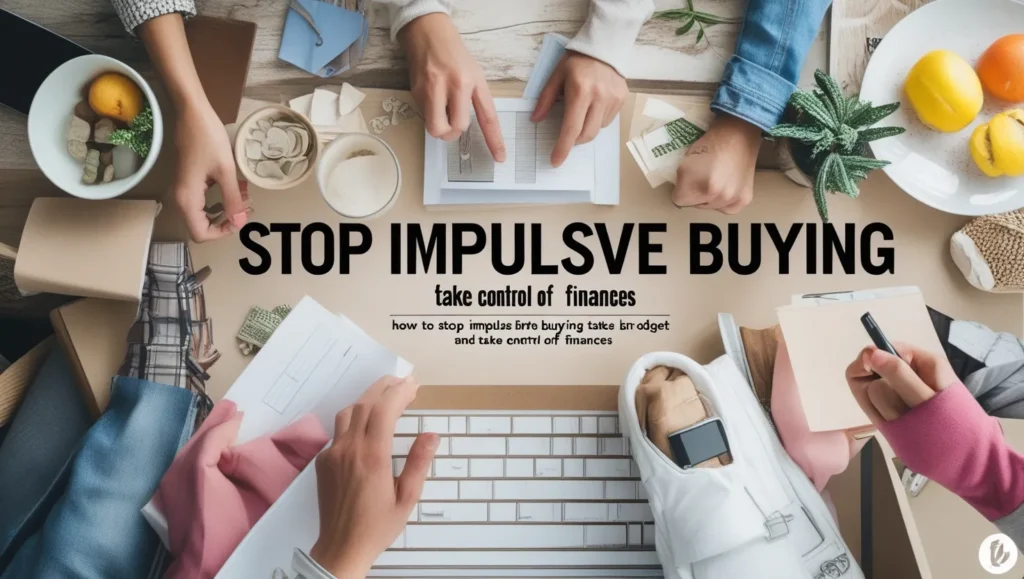Stop Impulse Buying and Take Control of Finances
Impulse buying can feel good in the moment, but those spontaneous purchases can quickly drain your finances. Over time, impulsive shopping can lead to financial Stop Impulse Buying and Take Control of Finances stress and prevent you from achieving your financial goals. The good news is that with a bit of self-awareness and discipline, you can curb impulse spending and take control of your money.
In this guide, we’ll explore practical steps to stop impulse buying and build healthier spending habits.
1. Understand the Root Cause of Impulse Buying
The first step to combating impulse purchases is recognizing why they happen. Some common triggers include:
- Emotional Spending: Shopping to cope with stress, anxiety, or boredom.
- Social Influence: Buying due to peer pressure or the fear of missing out (FOMO).
- Sales and Discounts: Falling for deals that seem too good to pass up.
- Convenience: Easy access to online shopping and one-click purchases.
Reflect on your shopping habits to identify what triggers your impulse buying.
2. Create a Realistic Budget
A budget is a powerful financial tool that can keep your spending in check. Track your monthly income and expenses to understand where your money goes. Allocate specific amounts for essentials like rent, utilities, groceries, and savings.
Set a limit for discretionary spending, including shopping and entertainment. This will help you stay within your financial means.
3. Practice the 24-Hour Rule
Before making any non-essential purchase, apply the 24-hour rule. Instead of buying Stop Impulse Buying and Take Control of Finances immediately, wait for a day to decide whether you truly need the item. Often, the initial urge to buy will pass, helping you avoid unnecessary expenses.
4. Make a Shopping List
Whether you’re grocery shopping or browsing online, always create a shopping list and stick to it. A well-planned list reduces the chances of buying items on impulse. Prioritize needs over wants and be disciplined about your choices.
5. Avoid Temptation
Limit your exposure to shopping triggers by unsubscribing from marketing emails, avoiding flash sales, and deleting shopping apps if necessary. Consider using website blockers to prevent access to shopping sites during times of vulnerability.
6. Use Cash Instead of Credit Cards
Credit cards make it easy to spend money you don’t have. Instead, use cash or a Stop Impulse Buying and Take Control of Finances debit card for everyday expenses. Physically handing over money often creates a stronger sense of spending than swiping a card.
7. Track Your Spending
Use budgeting apps or maintain a financial journal to monitor your spending. Regularly reviewing your expenses will give you clarity on where your money goes and hold you accountable.
8. Focus on Your Financial Goals
Create clear financial goals such as saving for a vacation, paying off debt, or building an emergency fund. Visualize these goals to stay motivated. Every time you’re tempted to make an impulse purchase, ask yourself if it’s worth delaying your financial progress.
9. Practice Mindful Spending
Before making a purchase, ask yourself a few key questions:
- Do I really need this item?
- Can I afford it without sacrificing my financial goals?
- Will this purchase bring long-term satisfaction or just momentary pleasure?
Being intentional about your spending decisions will help you break free from impulse buying.
10. Seek Support if Needed
If impulse buying has become a serious issue, consider seeking professional help. Financial advisors, counselors, or support groups can provide guidance and Stop Impulse Buying and Take Control of Finances accountability.
Final Thoughts
Overcoming impulse buying takes time and practice, but the rewards are worth it. By gaining control over your finances, you’ll experience less stress, greater savings, and the satisfaction of achieving your financial goals.
Start small by applying one or two of these tips today. Gradually, you’ll build a Stop Impulse Buying and Take Control of Finances healthier relationship with money and feel empowered in your financial decisions.
Remember, it’s not about depriving yourself but about making mindful choices that align with your long-term goals. Here’s to taking control of your finances and building a brighter financial future!


